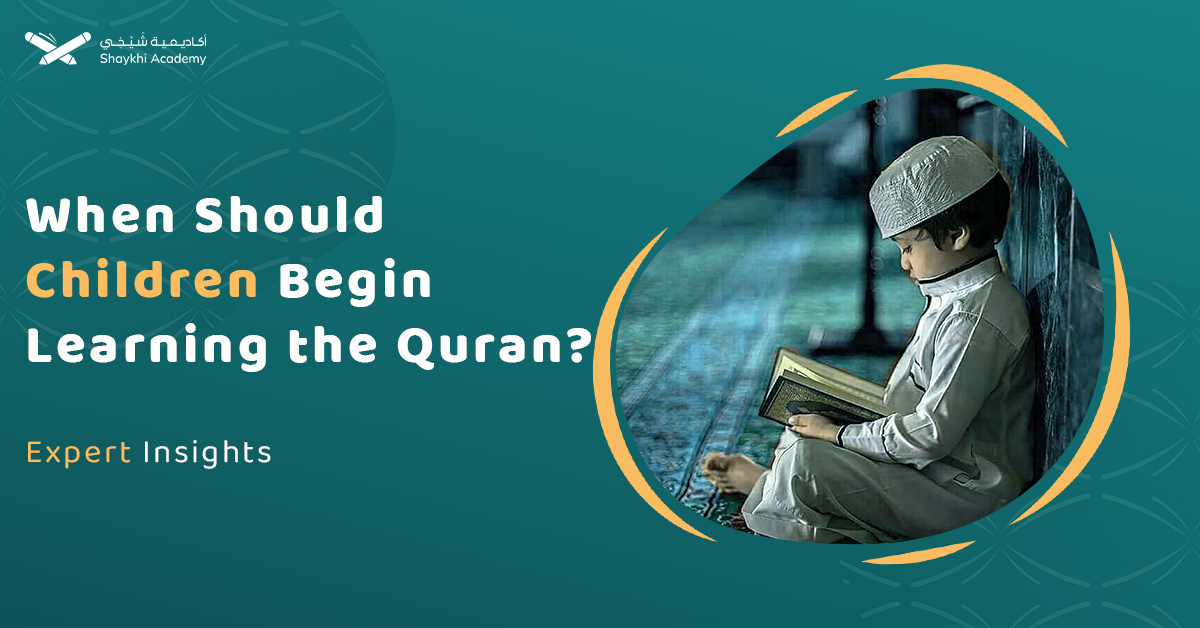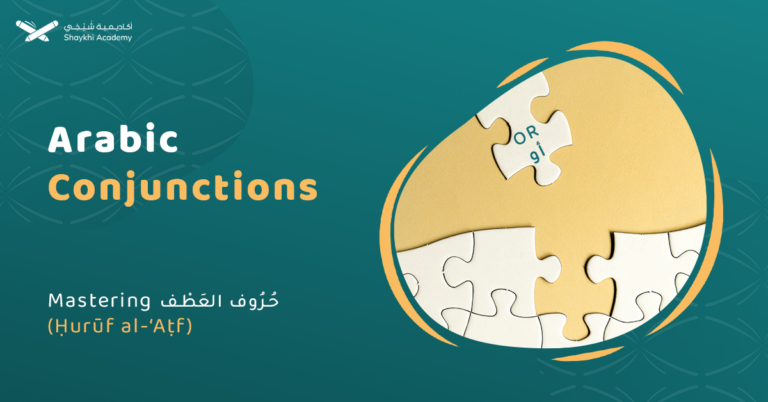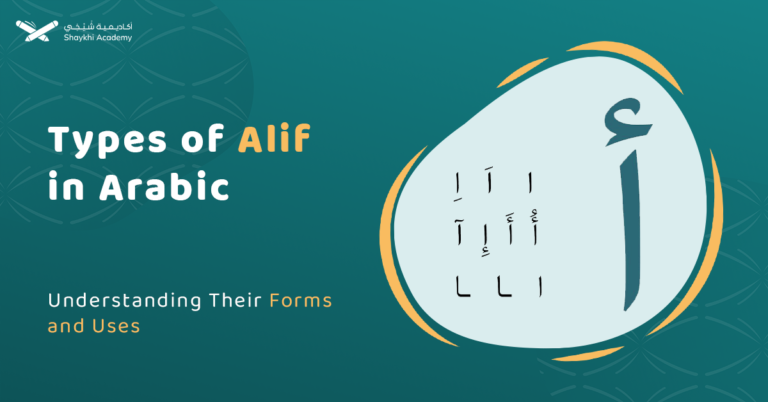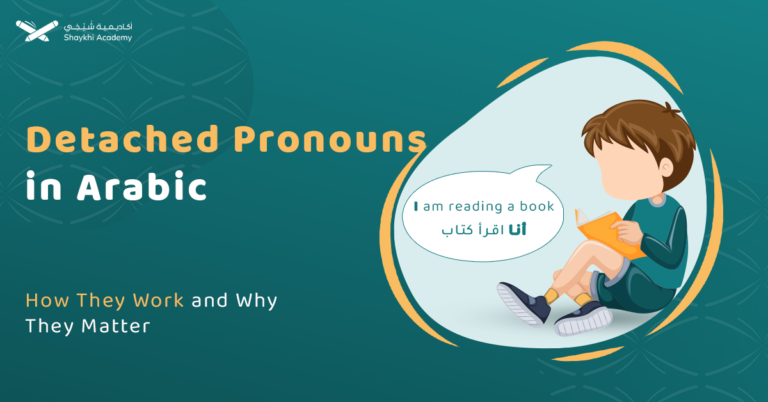The role of parents in teaching their children about religion is crucial, particularly when it comes to teaching the Book of Allah, reciting it, and applying it. It is crucial for children to learn basic Islamic beliefs, such as Aqidah, Allah’s unity and attributes, Muhammad’s life, and Fiqh about prayer and fasting.
In this article, our discussion will focus on the process of teaching children to the Quran, studying effective teaching methods, and learning how to create a positive and attractive learning environment.
When Should Children Begin Learning the Quran?
The right time and way to start Quranic education varies depending on age, preparedness, and learning methods. Some may respond better to visual aids, while others may learn better through listening or practical activities. It’s important to let your child learn at their own speed. This approach reduces pressure and promotes the love of learning, making the whole experience more enjoyable and rewarding.
Below is a guide on when to start and how to support children in this important task:
1- Early exposure: Ages 3 to 5
Starting the Quranic education for children from the ages of three to five is effective due to their natural curiosity and strong ability to absorb new information through:
A. Listening to recitations
One effective way to introduce the Quran is by playing recordings of its recitations. This assists children in becoming accustomed to the sounds, rhythms, and melodies of the Quranic verses. This auditory exposure can spark their curiosity and establish a strong foundation for future studies, making the text approachable and compelling.
B. Simple verses
Another helpful approach is to introduce short and simple verses. This allows children to begin memorizing without feeling overwhelmed. Encouraging repetition and recitation can make the process enjoyable.
Which Islamic teachings are suitable for a 2-year-old?
Concentrate on fundamental concepts like love, sharing, and kindness through simple anecdotes and songs. Repeating and engaging rhymes can reinforce these values.
What are effective methods for introducing the Quran to a 3-year-old?
Engaging storytelling sessions and colorful picture books that illustrate Quranic stories can help to capture their interest. Also, simple activities such as drawing scenes from the stories can be utilized.
What approaches can I use to teach the Quran to my 4-year-old?
Use interactive apps or videos to teach Quranic verses while having fun. Memorization can be made easier and more enjoyable by chanting verses.
What strategies should I use to teach the Quran to a 5-year-old?
Engage in practical activities, such as creating a memory game with Quranic words or verses. Encourage them to recite verses in front of family members to increase their confidence and familiarity.
2- Memorization: Ages 6 to 7
Encouraging the preservation of Quranic verses during the age of four and seven can help to deeply and permanently appreciate the Quran, which can greatly promote children’s religious development as they grow.
This stage of learning is beneficial for several key reasons:
A. Natural memory skills
The brains of children this age are capable of quickly adapting to new information and excelling at remembering melodies and rhythms, which makes learning Quranic verses a more enjoyable experience than a tedious task. This playful approach can lead to a more positive experience.
B. Building a foundation
Children become more familiar with the Quran’s language and structure by memorizing verses at a young age, which fosters a deeper connection to their faith as they learn to appreciate the meanings behind the verses and their significance in everyday life.
How can I effectively teach the Quran to a 6-year-old?
Engage them in a discussion about verses and provide simple explanations and relatable examples to help them comprehend the teachings in ways that are relevant to their daily lives.
What are the best practices for guiding a 7-year-old in learning the Quran?
Establish a schedule that incorporates reading and recitation, and motivate them to complete tasks by offering rewards or incentives to enhance their pleasure. Group learning with peers can also be more engaging.
3- Reading skills: Ages 6 to 8
Between the ages of six and eight, children are often prepared to start reading the Quran, and this phase can be paired with memorization for a comprehensive learning experience. Here are some important areas to focus on:
A. Understanding Arabic Phonics
At this stage, teaching the Arabic alphabet and the sounds associated with each letter is essential. This foundational skill allows children to read Quranic text fluently and learn Tajweed rules, helping them grasp the correct pronunciation of verses.
B. Exploring meanings
Involving children in the meanings behind verses during their reading is useful. This increases their understanding of the text and also makes them more aware of the teachings of Islam.
Discussing the context and significance of specific verses can enrich their spiritual growth and encourage thoughtful reflection on their faith.
Best Time In The Day To Learn Quran For Children:
Learning the Quran is an important journey that enriches a child’s spiritual and moral growth. The timing of this learning plays a crucial role in helping children engage positively with the text. Here are some insights into the best times for children to learn the Quran, By considering these optimal times and methods, parents and educators can help children build a strong and lasting connection to the Quran:
1- Early mornings: A fresh start
Many parents and educators find that mornings are ideal for Quran learning. Children who sleep well are more alert and focused, and short morning sessions can help create a peaceful atmosphere for connecting to the Quran and establishing discipline and routine before the day begins.
2- After naps or school: recharge and learn
For younger children, right after a nap or school can be very effective. They are often more open to learning after a break. Keeping the sessions light and interactive can help maintain their interest and enthusiasm for the Quran.
3- Evenings: A family bonding time
Evenings provide a wonderful opportunity for family bonding through Quran learning. After dinner, families can gather to read, discuss, and reflect on the Quran together. This not only reinforces learning but also strengthens family ties and shared values.
4- Before prayer times: A natural connection
Incorporating Quran learning just before prayer times creates a meaningful connection to their faith. This timing emphasizes the importance of prayer and makes the Quran study an integral part of their spiritual routine, setting a reflective mood for their prayers.
Do Children Memorize the Quran Before Learning to Read?
Children often memorize the Quran before learning to read, known as hifz, which is essential in Islamic education. This builds a foundation in Islamic teachings, but learning to read first can improve understanding of pronunciation and meaning. The best approach varies by child; some benefit from memorization and reading together, while others prefer one method at a time. A supportive environment is key to their spiritual and educational growth. There are several reasons why this method is effective and beneficial:
1- Early Quran Memorization
At a young age, a lot of kids begin memorizing verses from the Quran, sometimes before they have the ability to read or write. This step allows them to understand the messages of the Quran and build upon them based on the values and teachings of the Quran.
2- Oral tradition
The Quran was first transmitted verbally, and this tradition is still a vital part of Islamic scholarship. Memorization is a means of connecting with this historic practice, guaranteeing that the teachings are preserved and passed down through generations.
3- Spiritual benefits
Memorizing the Quran is believed to offer numerous spiritual advantages. Many believe it purifies the heart, enhances faith, and provides protection from negative influences. This spiritual connection can motivate children to engage more deeply with their faith.
4- Educational foundation
By memorizing the verses, your child will be able to develop a solid foundation for learning to read and write Arabic, which will help them understand its grammar and structure when they begin to read.
Benefits of Learning the Quran at ِ Young Age.
The following hadith talks about the benefits of learning the Quran:
قَالَ رَسُولَ اللَّهِ ﷺ: من قرأ القرآن، وتعلمه، وعمل به، ألبس والداه يوم القيامة تاجا من نور، ضوؤه مثل ضوء الشمس، ويكسى والداه حلتين لا تقوم بهما الدنيا! فيقولان: بم كسينا؟! فيقال: بأخذ ولدكما القرآن
The Messenger of Allah (may Allah’s peace and blessings be upon him) said: “Anyone who engages with the Quran by reading, learning, and living by its teachings will cause their parents to be adorned with a radiant crown on the Day of Judgment, its light as brilliant as the sun. Moreover, their parents will be dressed in garments of unparalleled splendor. Filled with wonder, they will ask, ‘What has earned us such honor?’ And the answer will be, ‘It is due to your child’s devotion to the Quran.”
Key Benefits of Learning the Quran:
1- Instilling ethical behavior
The Quran serves as a vital source of guidance on morality and ethics. Through its teachings, children learn empathy, compassion, and the distinction between right and wrong. It promotes honesty, kindness, and respect, helping them navigate life effectively. Regular reading instills these moral principles, shapes character, and fosters compassionate individuals.
2- Boosting mental growth
Early childhood learning of the Quran improves children’s cognitive skills, including memory, concentration, and analytical thinking. Engaging with complex concepts promotes critical thinking and analytical abilities. Regular reading also improves vocabulary and comprehension.
3- Discipline and concentration
Regular study of the Quran helps children build discipline and focus. The commitment to learning verses and understanding their meanings teaches them to be persistent. Reciting or memorizing parts of the Quran requires concentration, which also improves skills like studying and problem-solving. Engaging with the Quran regularly encourages discipline through practices like prayer and reflection.
4- Nurturing spiritual growth
Early engagement with the Quran fosters spirituality and strengthens moral values. It builds a deep connection with Allah and enhances faith and understanding. The Quran provides guidance and comfort during tough times, encouraging mindfulness and personal growth. Parents can consider enrolling their children in courses at Shaykhi Academy, where certified tutors offer quality education and spiritual development.
5- Foundation of faith
The Quran provides spiritual support and strengthens the connection to Islam, giving a sense of purpose. When children are exposed to it early, it helps shape their values and beliefs, creating a feeling of belonging. They learn about kindness, fairness, and thankfulness, which guides their moral choices. This foundation encourages a lifelong dedication to their faith and personal development.
6- Linguistic growth
The Quran is a magnificent work of Arabic literature, highlighting the splendor of the language. Children will learn its verses to immerse themselves in rich prose and poetry, enhancing their vocabulary and linguistic skills for better self-expression. Additionally, engaging with the Quran promotes critical thinking and comprehension as children explore complex themes, further improving their communication abilities.
7- Enhancing mental abilities and emotional health
The Quran provides comfort and guidance, helping children feel secure and purposeful, which contributes to their emotional growth. The Quran’s teachings encourage positive thinking and resilience through values such as gratitude and forgiveness. Engaging with the Quran can help children manage their emotions effectively, improve mental health, foster empathy and compassion, and ultimately lead to greater emotional intelligence.
8- Cultural identity
Connecting with the Quran early helps children embrace their cultural and religious heritage, fostering pride in their roots. This engagement deepens their understanding of traditions and values, reinforcing their identity within the community. As they learn its teachings, they gain appreciation for their background, boosting their confidence and sense of belonging.
How to Learn the Quran for Kids?
Teaching the Quran to children effectively requires engaging methods that foster understanding and affection for the text. Storytelling through Quranic tales in books or cartoons makes lessons enjoyable, while interactive activities and games keep them engaged and eager to learn. These strategies create a fun learning environment that encourages ongoing exploration of the Quran.
Parents play a crucial role as role models in this educational journey. Regular recitation of the Quran at home inspires children to participate and learn. Praising their efforts can enhance motivation, and simplifying lessons to suit their age prevents frustration, making the learning experience enjoyable and fulfilling.
A regular schedule of Quran lessons is necessary to build discipline and ensure progress. Short and focused sessions of 15 to 30 minutes’ duration meet young children’s limited periods of interest, promoting consistent learning without confusing them. Using online resources, such as Quran live classes for kids, can enrich their experience and deepen their connection to the Quran.
How to Start Teaching the Quran to Kids?
Introducing the Quran to children is an enriching experience that nurtures their faith and values. By employing effective methods, you can make learning enjoyable and impactful. This guide presents key steps for teaching kids, from foundational learning with Noorani Qaida to fostering a supportive atmosphere. Let’s delve into how to make their Quranic journey both engaging and meaningful:
1- Begin with Noorani Qaida.
Learning Noorani Qaida is vital for anyone, whether children, beginners, or adults looking to read the Quran accurately. It should be their first step to learn the Quran or Arabic, as it helps them to recognize letters, understand pronunciation rules, and learn consonants and vowels. This foundational knowledge is key for starting their Quranic journey.
2- Start with easy chapters.
Many believe learning the Quran is hard for beginners and kids, especially when starting with long chapters like Surah Al-Baqarah. To simplify the process, begin with shorter chapters with the children. Once they gain confidence and fluency, move on to the first juz. This gradual approach builds understanding and self-assurance in learning.
3- Keep it easy and simple.
Avoid pressuring your children to spend excessive time reading and memorizing the Quran, as this can lead to frustration. Instead, focus on keeping them engaged and productive at their own pace. Patience is key, and remember that every long journey starts with a single step.
4- Repetition is essential for learning.
Repetition is crucial when teaching kids the Quran. Regularly recite short Surahs in their presence and play the Quran softly at home to help them get used to it. With consistent practice, you’ll notice significant progress in their skills over time.
5- Participate in group learning sessions.
Join or organize group learning sessions with other children. This approach fosters a sense of community and makes learning more interactive. Kids can learn from one another, practice together, and even participate in friendly competitions that motivate them to improve.
6- Set a regular learning schedule.
Establishing a consistent study routine helps make Quran learning a daily habit for your children. Regularity is essential for mastering Quranic Arabic. Set specific times each day for study and stick to this schedule to encourage steady progress and foster discipline and commitment.
7- Child’s readiness
When considering the right time for children to begin learning the Quran, it’s essential to assess their readiness in several areas:
A. Cognitive development
Most children begin to focus on and understand Quranic verses by ages 4 to 5. At this stage, their ability to absorb new information grows, making it a suitable time to start.
B. Interest and curiosity
Pay attention to whether your child expresses a wish to learn about Islam and the Quran. If they ask questions or show enthusiasm, it’s a sign they might be ready to begin learning.
C. Emotional maturity
It’s essential to ensure your child is emotionally prepared to engage with the sacred text. They should approach it with respect and have an understanding of its significance.
8- Qualified teacher
A skilled Quran tutor is essential for teaching accurate pronunciation and making learning enjoyable. They simplify complex concepts and engage children, enhancing their appreciation of the Quran. Seek a tutor experienced with non-Arabic learners, as they use effective methods. Choosing the right teacher is key to your child’s success.
9- Supportive learning environment
A supportive learning environment is essential for children’s Quranic education, as it sets the foundation for effective learning and engagement. Parents should ensure their child feels comfortable and motivated to learn. This can include setting aside quiet time for study, offering resources that ignite interest, and encouraging questions about the Quran.
10- Parents’ Positive Participation
Parental participation is a vital element in children’s Quranic education, as it promotes the learning process and promotes a deeper connection to the teachings of Islam. Parents are key to promoting what their children learn. By dealing with them during study sessions or discussing Quranic stories,
Show Quranic values and practices in everyday life to be a positive example for your child that can motivate them. When they notice that you live through these teachings, they appreciate them and adopt them as well.
11- Learn Quran Games:
Learning the Quran through games provides many benefits for children’s growth, including cognitive, physical, social, and emotional development. Shaykhi Academy uses this method to help children develop a love for the Quran and learn important spiritual values. It’s crucial to engage children in activities that suit their age and understanding. Fun activities like verse hunts and puzzles allow children to explore their faith while having a great time.
12- Quranic stories for kids.
Quran stories for kids are essential for teaching the Holy Quran, offering valuable lessons, and instilling moral values from an early age. They provide spiritual guidance and insights into Islamic history, motivating children to embrace virtues like faith and honesty. It’s important to choose age-appropriate stories, with educators recommending imaginative tales to effectively engage young minds. Overall, Quranic stories play a crucial role in nurturing children’s moral development.
13- Interactive Quran Learning.
Interactive Quran learning for kids helps them connect with Quranic teachings using games, technology, and hands-on activities. This fun approach lets children explore stories and values playfully, often through apps with interactive lessons. Group activities encourage teamwork, while visual aids and storytelling make understanding the Quran easier. Overall, this method teaches important moral and spiritual values while keeping learning enjoyable.
What are the Phases of Learning the Quran for Kids?
Learning the Quran is a step-by-step journey that aligns with children’s developmental stages. It usually starts with basic Arabic reading skills, progressing to memorizing Quranic verses. These phases not only enhance language skills but also strengthen children’s connection to the Quran and its teachings.
1- The proper age for children to begin learning Arabic.
Kids usually start learning to read Arabic when they are between six and eight years old. At this time, the main goal is to teach them the Arabic alphabet, how to pronounce letters correctly, and some simple words. Fun activities like games, flashcards, and short stories can make learning enjoyable and effective. This early practice helps build their reading skills and makes them more comfortable with the language.
2- The proper age for children to memorize the Quran
Kids usually begin memorizing the Quran between the ages of 5 and 7, concentrating on shorter surahs like Al-Fatiha and Al-Ikhlas. Regular practice and enjoyable techniques can aid their memorization and foster a love for the Quran.
As they develop, from ages 8 to 12, they can take on longer surahs and gain a deeper understanding of their meanings. Participating in Quran study groups enriches their learning experience, offering motivation and support that strengthens their memorization efforts.
An Integrated Learning Experience for Your Child at Shaykhi Academy.
Shaykhi Academy offers a structured curriculum for children learning the Quran, focusing on essential skills like reading, memorization, and comprehension. Experienced instructors create a supportive environment tailored to each child’s age and needs.
Shaykhi Academy gives children the chance to learn in a flexible way that suits their schedules, whether it’s online or in live sessions, to ensure that their Quranic studies are aligned with their lifestyle and preferences.
The academy emphasizes proper Tajweed for correct recitation and integrates lessons on Islamic values, promoting moral education alongside Quranic knowledge. This holistic approach fosters a strong connection to the Quran and supports children’s overall growth.
Why Choose Shaykhi Academy?
- Connect with highly qualified native tutors.
- Flexible scheduling to suit your busy lifestyle.
- Affordable classes tailored for all levels.
- Accessible from anywhere around the globe.
Discover Our Range of Courses:
- Arabic Noorani Qaida: Lay a solid foundation for Quranic studies.
- Online Quran Classes for Kids: Engaging lessons for lifelong learning.
- Tajweed Rules for Kids: Learn to recite with confidence.
- Quran Hifz for Kids: Step-by-step guidance to memorize the Quran.
- Quran for Adults: Introduce yourself to Quran reading and Tajweed rules.
- Online Arabic Courses: Master the language of the Quran.
- Islamic Studies: A wide range of topics related to Islam, including theology, law, Quranic studies, Hadith.
Don’t Miss Out on Your Chance to Excel!
Whether you’re a beginner or seeking advanced knowledge, Shaykhi Academy can guide you! Book your free trial now!
Conclusion
Introducing the Quran to children early can significantly enhance their spiritual and personal growth. Starting around age three with memorization and stories and focusing on reading skills from ages six to eight helps build a strong foundation. Considering each child’s readiness and interests is crucial for a positive experience.
By using interactive methods, parents can create a nurturing environment that fosters a lifelong connection to the Quran, enriching their emotional well-being and moral understanding.















































